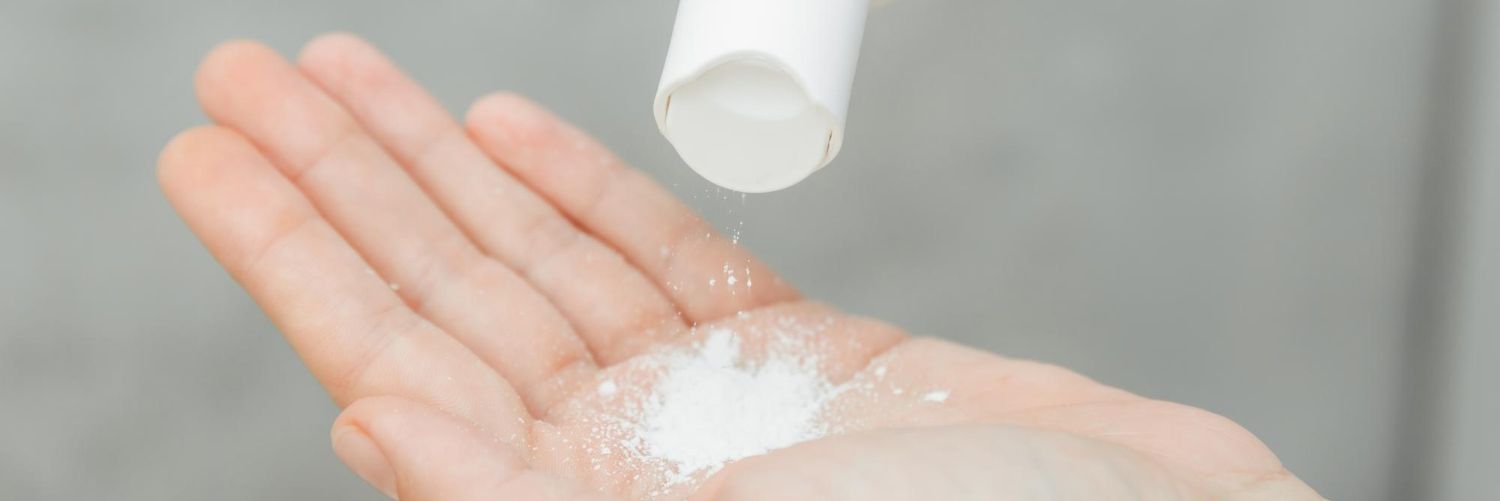Jury To Select 10 Paragard Suits For First Bellwether Trial

The method for selecting a group of ten typical cases has been detailed by the United States District Court hearing over all federal Paragard proceedings.
These cases will be eligible for the first bellwether trials next year, with each claim needing accusations of IUD breakage during implant removal.
The judge has established a bellwether program as part of the pretrial proceedings, in which a small group of representative cases will be prepared for early trial dates to help the parties gauge how juries are likely to react to certain evidence and expert witness testimony that will be repeated across thousands of cases if Paragard settlements are not reached.
The judge previously stated that the first Paragard bellwether trial will begin on March 4, 2024, but the Court will not choose which exact case will go before a jury until this autumn after a limited number of claims undergo case-specific discovery over the following six months.
The judge indicated in a case management order issued on February 22 that the parties will now begin the process of selecting an initial bellwether case pool, which will consist of 10 Paragard lawsuits involving IUD breakage allegations, with Plaintiff Fact Sheets and document production completed prior to December 1, 2022.
This week, the parties will submit a list of all qualifying cases for selection, and the plaintiffs have been required to suggest 15 instances for the bellwether pool by February 27, 2023. By March 17, the parties will each choose three instances from this list, and the court will choose six cases at random. After a series of challenges, each side will be allowed to strike one case, resulting in a final pool of ten claims.
Upon the completion of the bellwether pool, each case will go through additional discovery, which will include depositions of the plaintiffs and their spouses, as well as medical professionals and other fact witnesses.
The parties will reconvene and consult in August 2023 to make alternate strikes from the remaining ten bellwether pool cases until just six claims remain. The parties will then choose one case each, and the court will choose a third, with the first trial date set for March 2024.
Between August 18, 2023 and December 22, 2023, the parties will conduct additional discovery on the three remaining cases, and the Court will later identify which claim will go before a jury first, with another identified as a backup in the event that a settlement or other resolution prevents the first case from proceeding to trial.
The Paragard IUD is a tiny plastic device coated with copper that is implanted in the uterus to provide women with long-term pregnancy prevention for up to 10 years.
Although the procedure is marketed as safe and reversible, allowing doctors to remove the IUD during an out-patient office procedure when women no longer want the birth control, lawsuits filed in federal court allege that women experienced Paragard IUD breakage as doctors attempted to remove it, often necessitating emergency surgery to retrieve pieces of the IUD, which can cause devastating internal injuries.
Consolidated pretrial proceedings were established in December 2020, transferring all pending and new cases filed throughout the federal court system to the U.S. District Court for the Northern District of Georgia for coordinated discovery and pretrial proceedings as part of an MDL due to common questions of fact and law raised in complaints filed in U.S. District Courts nationwide (multidistrict litigation).
Congressman Seeks GAO Probe Into J&J's Talc Costs To Govt.

A Tennessee congressman is pushing for a government probe into the costs of treating individuals who have been injured by asbestos in Johnson & Johnson talcum powder products.
On February 21, the legislator wrote to the U.S. Government Accountability Office (GAO) demanding a review of public expenditures for persons diagnosed with ailments such as ovarian cancer and mesothelioma that may have been caused by asbestos in Johnson's Baby Powder and other goods.
According to the letter, J&J sold infant powder that was known to be tainted with asbestos, a known carcinogen, for decades. As a result, hundreds of thousands, if not millions, of men and women are now suffering from ovarian cancer and mesothelioma. The federal government supported J&J by paying for the repercussions of their misbehavior through healthcare spending. The letter further stated that the congressman is interested in learning how much taxpayer money was spent on this business subsidy.
The legislator also requested that the GAO investigate how much money has been spent by the Departments of Defense, Veterans Affairs, Justice, and Health and Human Services on health care and medical treatments for persons diagnosed with talcum powder-related illnesses since 1972.
According to the letter, Johnson & Johnson has known since the 1970s that their Baby Powder products included asbestos and that the particles present in talc might cause cancer. Yet, he claims that the firm continued to sell contaminated talcum powder goods, primarily targeting women of color and women who are overweight.
The request comes as thousands of talcum powder cancer lawsuits filed against Johnson & Johnson remain in the federal bankruptcy system after the multinational corporation attempted to spin off all liability for failing to warn about asbestos risks into a new subsidiary, which then declared bankruptcy.
Johnson & Johnson is facing over 38,000 Baby Powder cases and Shower-to-Shower lawsuits, all of which include identical claims filed by people who developed ovarian cancer, mesothelioma, and other diseases after being exposed to harmful asbestos particles.
If such instances result in talcum powder lawsuit awards or settlements by the manufacturer, the United States government would be entitled to recover its share of Medicare and Medicaid-covered medical expenditures. However, the litigation has been stalled for the past year because Johnson & Johnson decided to pursue a talcum powder bankruptcy scheme known as the "Texas Two Step," despite the fact that the company has billions of dollars in assets to cover the damages caused by their actions over the past several decades.
The letter comes only weeks after the United States Court of Appeals for the Third Circuit rejected the Johnson & Johnson bankruptcy, ruling that the wholly owned subsidiary formed to absorb this case is not in financial difficulty. But, Johnson & Johnson is still challenging that ruling, requesting a rehearing and signaling that it plans to continue delaying the dispute by seeking review by the United States Supreme Court.
FDA Recommends To Make Narcan Available Over The Counter

The FDA has suggested making the opioid overdose antidote Narcan available without a prescription over-the-counter, allowing customers to buy the crucial nasal spray in locations such as gas stations and grocery shops.
According to the FDA's Joint Nonprescription Drug Advisory Committee and Anesthetic and Analgesic Drug Products Advisory Committee, consumers should be able to obtain opioid reversal medication without a doctor's prescription, which would greatly increase access to the product and potentially save thousands of lives.
Narcan (naloxone) is a 4-milligram dosage nasal spray that is licensed to reverse the symptoms of an opioid overdose and, in many circumstances, prevents deadly overdoses from occurring with both prescription painkillers such as Oxycodone and illegal opioids such as heroin and fentanyl.
Opioids are responsible for 70% of drug overdose deaths in the United States, and the nasal spray has been hailed as a vital component of the national effort to combat the opioid addiction and misuse problems that have afflicted communities across the country in recent years.
Narcan is currently exclusively available through pharmacies, but the FDA advisory committee decision may force the government to enable the opioid reversal drug to be sold over the counter.
According to a World Health Organization research from 2014, the availability of Narcan over the counter might save tens of thousands of lives each year. The FDA invited naloxone manufacturers in November to apply for over-the-counter approval of the medicine.
While the FDA is not compelled to adopt the advisory committee's guidance, the fact that the FDA was already requesting firms to apply for OTC clearance, as well as the committee's unanimous decision, implies that the FDA will most likely follow its recommendations.
The opioid crisis in the United States has worsened, hitting an all-time high and being hastened by difficulties associated with the COVID-19 pandemic, largely due to irresponsible prescribing by doctors. According to health experts, the move to allow Narcan over-the-counter sales might save thousands of lives.
The committee cautioned that the risk of overdose is now too severe to prohibit the medicine from being available over the counter. Drug overdoses are the greatest cause of unintentional mortality in the United States. Prescriptions for naloxone grew from 359,000 in 2017 to 1.5 million in 2021.
The committee found that using Narcan without medical supervision is safe. The medicine has no impact when administered to someone who is not suffering from an opioid overdose.
It is simply delivered by spraying it into the nasal tube of someone who is suffering from an overdose. Subsequent dosages can be given two to three minutes after the initial dose, with no negative consequences.
Not all pharmacies maintain the medication on hand to complete prescriptions. The new policy would make opioid-reversal medication readily available at pharmacies, convenience stores, grocery stores, and even vending machines.
The suggestion will be forwarded to the FDA, which will make a final decision on March 29.
